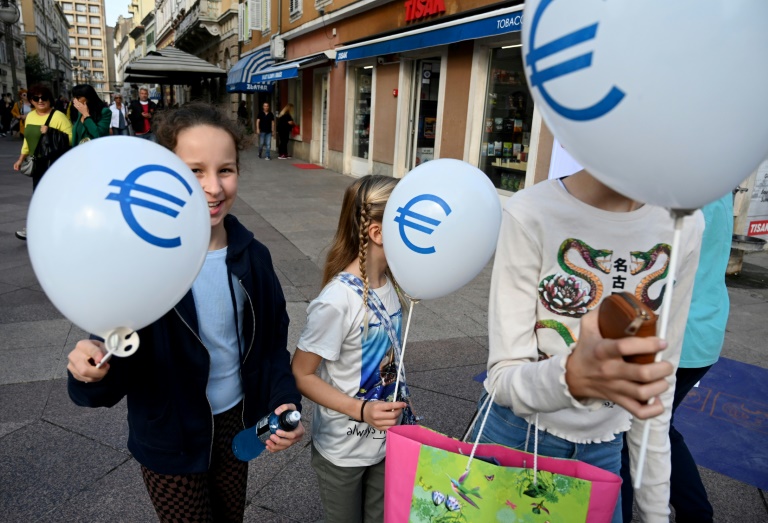
ZAGREB, Dec 31 (NNN-AGENCIES) — Croatia was counting the last hours Saturday before switching to the euro and entering Europe’s passport-free zone — two milestone steps for the country since joining the EU nearly a decade ago.
At midnight Saturday the Balkan nation will bid farewell to its kuna currency and become the 20th member of the eurozone.
It will also be the 27th nation in the passport-free Schengen zone, the world’s largest, which enables more than 400 million people to move freely around its members.
Experts say the adoption of the euro will help shield Croatia’s economy at a time when inflation is soaring worldwide after Russia’s invasion of Ukraine sent food and fuel prices through the roof.
But feelings among Croatians are mixed — while they welcome the end of border controls, some worry about the euro switch, with right-wing opposition group saying it only benefits large countries such as Germany and France.
Officials have defended the decisions to join the eurozone and Schengen, with Prime Minister Andrej Plenkovic saying Wednesday that they were “two strategic goals of a deeper EU integration”.
Croatia, a former Yugoslav republic of 3.9 million people that fought a war of independence in the 1990s, joined the European Union in 2013.
The euro is already largely present in Croatia.
About 80 percent of bank deposits are denominated in euros and Zagreb’s main trading partners are in the eurozone.
Croatians have long valued their most valued assets such as cars and apartments in euros, displaying a lack of confidence in the local currency.
Experts say adoption of the euro will lower borrowing conditions amid economic hardship.
Croatia’s inflation rate reached 13.5 percent in November compared to 10 percent in the eurozone.
Croatia’s entry into the Schengen borderless area will also provide a boost to the Adriatic nation’s key tourism industry, which accounts for 20 percent of its GDP.
The long queues at the 73 land border crossings with fellow EU members Slovenia and Hungary will become history.
Border checks will only end on March 26 at airports due to technical issues.
Croatia will still apply strict border checks on its eastern border with non-EU neighbours Bosnia, Montenegro and Serbia as the fight against illegal migration remains the key challenge in guarding EU’s longest external land border at 1,350 kilometres. — NNN-AGENCIES






